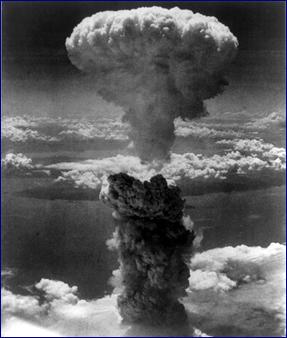VII. Creating and Managing Process
either log in or click here to purchase.
Log in here to access video.
Haven't purchased Eye of the Storm Leadership?
Starting Point / The Gang of Fourteen
In the United States, politics seems starkly divorced from governance. Statesmanship and diplomacy have gone missing. Instead, the political scene is monopolized by single-issue extremists, secular and religious wing nuts, and people who prefer to do their politics through lawyering, wheedling, and spin-peddling. The great games of our time are dutifully reported and egged on by the media. Editors and reporters love the constant interplay of towel-snapping, eye-poking, face-slapping, nose-grabbing, ear-pulling, and back-stabbing. Increasingly, we accept this as the normal way of doing the work of the people.
Every once in a while there are glimmers of something different. Late in 2004, a potentially paralyzing political showdown developed in the U.S. Congress. Word filtered around Washington, DC that conservative Republicans were girding for a battle aimed at keeping Democrats from blocking President Bush’s judicial nominations to America’s highest courts. Judicial appointments are the greatest perk of a president, but the advice and consent of the Senate is required. Democrats threatened to filibuster.
Bill Frist (R-Tennessee), Senate Majority Leader and a close ally of President Bush, hinted that he might use an unusual parliamentary maneuver that the Democrats called “the nuclear option� to put an end to filibusters on all future judicial nominees. The Democrats, led by Harry M. Reid (D-Nevada), threatened to fight back. If the filibuster was taken away as a tool, Democrats threatened to use other procedural tactics at their disposal to effectively tie up the Republicans as they tried to implement their agenda. Observers, pundits, and scholars noted that exercising the “nuclear option� would set a precedent negating the long tradition of protecting dissenting views in the Congress.
 The Nuclear Option. Credit: Wikimedia Commons.
The Nuclear Option. Credit: Wikimedia Commons.
 U.S.Capitol. Credit: Wikimedia Commons.
U.S.Capitol. Credit: Wikimedia Commons.Small p politics thrives in the interstitial spaces of our political system, inside company offices, schools, community centers, civic clubs, church rectories, and soccer teams. It happens when more ordinary, less exalted people try to do the right thing but disagree strenuously on what exactly that “right� thing is. It too is vulnerable to what my friend Kem Lowry calls “individual psycho-pathologies masquerading as social issues.� On the upside, it also happens when people of reasonable intelligence and modest amounts of good will interact with each other, discover common interests, and try and sort matters out. In this regard, big P and small p politics are similar. Our best senators, diplomats, and presidents do small p politics very well. So do our best basketball coaches, restaurant managers, nurses, sanitation engineers, bank tellers, and beat cops. You don’t have to be an elected or appointed big shot to try to tame tough problems or unite people. What you do need are some skills, tools, a bit of courage, and a good roadmap.
After arduous deliberations, the Republicans inside Gang of Fourteen agreed to back off their threat to prohibit filibusters on judicial nominees. In turn, the Gang of Fourteen Democrats agreed to let some judicial appointments move forward, reserving any future use of a filibuster to “extraordinary circumstances.� Nobody quite defined what that means, but it solved the immediate problem.
The bipartisan revolt was revolutionary, at least in the context of a Congress and Executive Branch dominated by one party. The Gang of Fourteen created a breakthrough and averted a serious meltdown of Congressional business. More importantly, it created a new political center on an ongoing issue and demonstrated how careful, across-the-aisle discussions led by politically astute men and women with courage could yield results important for the country. It was centrism at its best.
Not everyone was happy with the Gang of Fourteen. Frist made perfunctory praising comments but seemed to have invested much of his own political capital in a confrontation. Conservative Senator Lindsey Graham (R–South Carolina) said he expected political fallout from joining the Gang of Fourteen. Senators Dianne Feinstein (D-California) and Arlen Specter (R-Pennsylvania), normally key players in bipartisan coalition-building, did not support the negotiations. Nonetheless, hands came off the political nuclear trigger and a ceasefire was put in place.

61 Maps
“We’re completely lost, but we’re making good time.� Yogi Berra
 “Here There Be Monsters� – Map from the 1660s. Credit: Library of Congress.
“Here There Be Monsters� – Map from the 1660s. Credit: Library of Congress.
62 Names
“Whenever I am confronted with a choice between two evils, I always choose the one I haven’t tried.� Mae West
|
|
This site managed with Dynamic Website Technology
from Mediate.com Products and Services |
